Want To Know More About Mutual Funds?
Posted On Friday, Dec 31, 2021
| Table of Contents | |
| Sr no | Header |
1 | About Mutual Funds |
2 | Mutual Fund Investment Types |
3 | Income Tax on Mutual Funds in India |
4 | Mutual Funds Investments in India |
If you ask us, we don’t think there is any investor who does not know about mutual funds.
After all, mutual funds are one of the best investment options.
However, to many investors, Mutual Funds seem complicated and sometimes scary. That is only because they don’t have adequate knowledge about mutual funds investment.
To say it in the simplest of words, a Mutual fund is a trust that pools in money from investors (Individual or institutional),
The pooled money is then invested in equities, bonds, money market instruments etc as per mutual fund scheme’s investment objective. Every investor owns units, which simply is a portion of the total holdings of the fund.
So, if you are a new investor looking forward to know more about mutual funds so that you can make informed investment decisions, continue reading ahead.
We will tell you more about mutual funds in India on the whole.
The first thing you must know about mutual funds in India are the types of mutual funds.
Based on asset class, mutual funds can be broadly classified as:
Equity Funds
These are funds that invest in stocks of different companies majorly. Their returns are based on the performance of the underlying stocks in the market. They have potential for higher return possibilities, but it comes with a higher risk associated as well.
Debt Funds
These are funds that invest in fixed-income securities such as bonds, securities, treasury bills, etc.. This makes it a very good option for investors who don’t want to take much risk and avoid equity market volatility.
Money Market Funds
Money market funds are short term debt funds that invest in various money market instruments such as T-bills, Commercial paper, dated securities and certificates of deposits etc.
Hybrid Funds
These funds have a combination of bonds and stocks. These funds bridge the gap between equity funds and debt funds. These types of funds are more suited to investors who are willing to take exposure in both equity and debt.
We hope this gives you more clarity about mutual fund types and also about mutual funds investment.
It is imperative for an investor to have as much knowledge about mutual funds investment as possible.
Because we cannot stress enough about mutual funds investment - like any other type of investment, mutual funds too carry a risk.
We are sure you would have heard “Mutual Fund Sahi Hai”, but we are also sure one more thing about mutual funds investment:
“Mutual Fund investments are subject to market risk. Please read the offer document carefully before investing”.
With that being said, who should invest in Mutual funds?
We believe that every investor who has narrowed it down to specific financial goals should think about mutual funds investment. Because one thing you must know about mutual funds investment is that it is a potential way to achieve your goals systematically.
And there are mutual fund plans/schemes available to suit all types of investors.
All investors have to do is assess how much risk they are willing to take, for how long they intend to stay invested and finally, their goal that they look forward to accomplishing with the investment.
Once all of this is known to an investor, the most important aspect is to know about tax on mutual funds in India.
So, when we speak about tax on mutual funds in India, there is the tax on capital gains that an investor must know about.
A. Tax on Capital Gains: The capital gains an investor gains from mutual funds depends on the holding period & the type of mutual fund. Here is a basic structure:
| Fund Type | Short term capital gains (STCG) | Long term capital gains (LTCG) |
| Equity funds | Holding Period less than 12 months | Holding Period more than 12 months |
| Debt funds | Holding Period less than 36 months | Holding Period more than 36 months |
| Hybrid equity-oriented funds | Holding Period less than 12 months | Holding Period more than 12 months |
| Hybrid debt-oriented funds | Holding Period less than 36 months | Holding Period more than 36 months |
The above is something all investors must know regarding tax on mutual funds in India.
Let us now know more about mutual funds in India.
Mutual Fund investments are one of the most popular and fastest growing investment options in India for individual investors.
You see, when we discuss about mutual funds in India, the options are many.
There are many fund houses, AMC’s, distributors, etc. who can help you on how to go about mutual funds investment.
We can tell you in detail about one such Fund House, which has multiple options if you want to invest in mutual funds – Quantum Mutual Funds.
Why Quantum? Well, simply because it has 3 Decades of Integrity, Trust & Performance.
Quantum Mutual Fund’s sponsor and Holding Company of Quantum AMC, Quantum Advisors Private Limited, was founded in 1990 as India’s first institutional equity research house.
Quantum Mutual Fund has pioneered the low-cost, direct-to-investor approach to investing in India, providing – for the first time – consistently applied valuation metrics to evaluate investment opportunities in India.
Here is a glimpse of what you can consider investing in from Quantum’s offerings:
1. Quantum Long Term Equity Value Fund
2. Quantum Tax Saving Fund
3. Quantum Equity Fund of Funds
4. Quantum India ESG Equity Fund
5. Quantum Nifty ETF
6. Quantum Liquid Fund
7. Quantum Dynamic Bond Fund
8. Quantum Gold Savings Fund
9. Quantum Gold Fund
10. Quantum Multi Asset Fund of Funds
So, today we told not only about mutual funds in India, but also about mutual funds investment in general. And also, the very important aspect of income tax on mutual funds in India.
So, if you want to start investing in Mutual funds with as low as Rs 500 a month, start right here.
| Name of the Scheme | This product is suitable for investors who are seeking* | Risk-o-meter of Scheme |
| Quantum Long Term Equity Value Fund An Open Ended Equity Scheme following a Value Investment Strategy | • Long term capital appreciation • Invests primarily in equity and equity related securities of companies in S&P BSE 200 index | 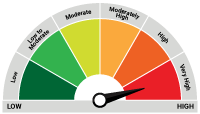 Investors understand that their principal will be at Very High Risk |
| Quantum Tax Saving Fund An Open Ended Equity Linked Saving Scheme with a Statutory Lock in of 3 years and Tax Benefit | • Long term capital appreciation • Invests primarily in equity and equity related securities of companies in S&P BSE 200 index and to save tax u/s 80 C of the Income Tax Act. Investments in this product are subject to lock in period of 3 years. |  Investors understand that their principal will be at Very High Risk |
| Quantum Equity Fund of Funds An Open Ended Fund of Funds scheme Investing in Open Ended Diversified Equity Schemes of Mutual Funds | • Long term capital appreciation • Investments in portfolio of open-ended diversified equity schemes of mutual funds registered with SEBI whose underlying investments are in equity and equity related securities of diversified companies |  Investors understand that their principal will be at Very High Risk |
| Quantum India ESG Equity Fund An Open ended equity scheme investing in companies following Environment, Social and Governance (ESG) theme | • Long term capital appreciation • Invests in shares of companies that meet Quantum's Environment, Social, Governance (ESG) criteria. |  Investors understand that their principal will be at Very High Risk |
| Quantum Nifty ETF An Open Ended Scheme Replicating / Tracking Nifty 50 Index | • Long term capital appreciation • Investments in equity and equity related securities of companies in Nifty 50 Index |  Investors understand that their principal will be at Very High Risk |
| Quantum Liquid Fund An Open-ended Liquid Scheme. A relatively low interest rate risk and relatively low credit risk. | • Income over the short term • Investments in debt / money market instruments. | 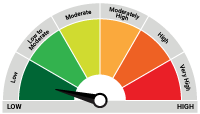 Investors understand that their principal will be at Low Risk |
| Quantum Dynamic Bond Fund An Open-ended Dynamic Debt Scheme Investing Across Duration. A relatively high interest rate risk and relatively low credit risk. | • Regular income over short to medium term and capital appreciation • Investment in Debt / Money Market Instruments / Government Securities | 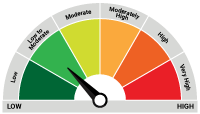 Investors understand that their principal will be at Low to Moderate Risk |
| Quantum Gold Savings Fund An Open Ended Fund of Fund Scheme Investing in Quantum Gold Fund | • Long term returns • Investments in units of Quantum Gold Fund – Exchange Traded Fund whose underlying investments are in physical gold | 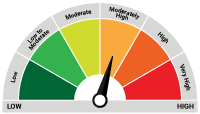 Investors understand that their principal will be at Moderately High Risk |
| Quantum Gold Fund An Open Ended Scheme Replicating / Tracking Gold | • Long term returns • Investments in physical gold |  Investors understand that their principal will be at Moderately High Risk |
| Quantum Multi Asset Fund of Funds An Open Ended Fund of Funds Scheme Investing in schemes of Quantum Mutual Fund | • Long term capital appreciation and current income • Investments in portfolio of schemes of Quantum Mutual Fund whose underlying investments are in equity , debt / money market instruments and gold | 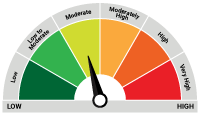 Investors understand that their principal will be at Moderate Risk |
*Investors should consult their financial advisers if in doubt about whether the product is suitable for them.
The Risk Level of the Scheme in the Risk O Meter is based on the portfolio of the scheme as on November 30, 2021.
| Potential Risk Class Matrix - Quantum Liquid Fund | |||
| Credit Risk → | Relatively Low | Moderate (Class B) | Relatively High (Class C) |
| Interest Rate Risk↓ | |||
| Relatively Low (Class I) | A-I | ||
| Moderate (Class II) | |||
| Relatively High (Class III) | |||
| Potential Risk Class Matrix - Quantum Dynamic Bond Fund | |||
| Credit Risk → | Relatively Low | Moderate (Class B) | Relatively High (Class C) |
| Interest Rate Risk↓ | |||
| Relatively Low (Class I) | |||
| Moderate (Class II) | |||
| Relatively High (Class III) | A-III | ||
Disclaimer, Statutory Details & Risk Factors:
The views expressed here in this article / video are for general information and reading purpose only and do not constitute any guidelines and recommendations on any course of action to be followed by the reader. Quantum AMC / Quantum Mutual Fund is not guaranteeing / offering / communicating any indicative yield on investments made in the scheme(s). The views are not meant to serve as a professional guide / investment advice / intended to be an offer or solicitation for the purchase or sale of any financial product or instrument or mutual fund units for the reader. The article has been prepared on the basis of publicly available information, internally developed data and other sources believed to be reliable. Whilst no action has been solicited based upon the information provided herein, due care has been taken to ensure that the facts are accurate and views given are fair and reasonable as on date. Readers of this article should rely on information/data arising out of their own investigations and advised to seek independent professional advice and arrive at an informed decision before making any investments.
Mutual fund investments are subject to market risks read all scheme related documents carefully.
Please visit – www.quantumamc.com/disclaimer to read scheme specific risk factors. Investors in the Scheme(s) are not being offered a guaranteed or assured rate of return and there can be no assurance that the schemes objective will be achieved and the NAV of the scheme(s) may go up and down depending upon the factors and forces affecting securities market. Investment in mutual fund units involves investment risk such as trading volumes, settlement risk, liquidity risk, default risk including possible loss of capital. Past performance of the sponsor / AMC / Mutual Fund does not indicate the future performance of the Scheme(s). Statutory Details: Quantum Mutual Fund (the Fund) has been constituted as a Trust under the Indian Trusts Act, 1882. Sponsor: Quantum Advisors Private Limited. (liability of Sponsor limited to Rs. 1,00,000/-) Trustee: Quantum Trustee Company Private Limited. Investment Manager: Quantum Asset Management Company Private Limited. The Sponsor, Trustee and Investment Manager are incorporated under the Companies Act, 1956.
Related Posts
-

Understanding AMC: The Asset Management Company to Mutual Funds
Posted On Friday, Sep 06, 2024
In the world of mutual funds, the term "AMC" might appear frequently. AMC stands for Asset Management Company, and it manages the operation and management of mutual funds.
Read More -

IDCW Option in Mutual Funds: A Simple Guide for Investors
Posted On Thursday, Aug 29, 2024
The Indian mutual fund industry has grown incredibly fast over the past 10 years.
Read More -

How to Calculate Returns From an ELSS And Its Tax Implications
Posted On Friday, Feb 10, 2023
As you may know, there are multiple tax-saving options in India to save taxes under Section 80C of the Income Tax Act
Read More



